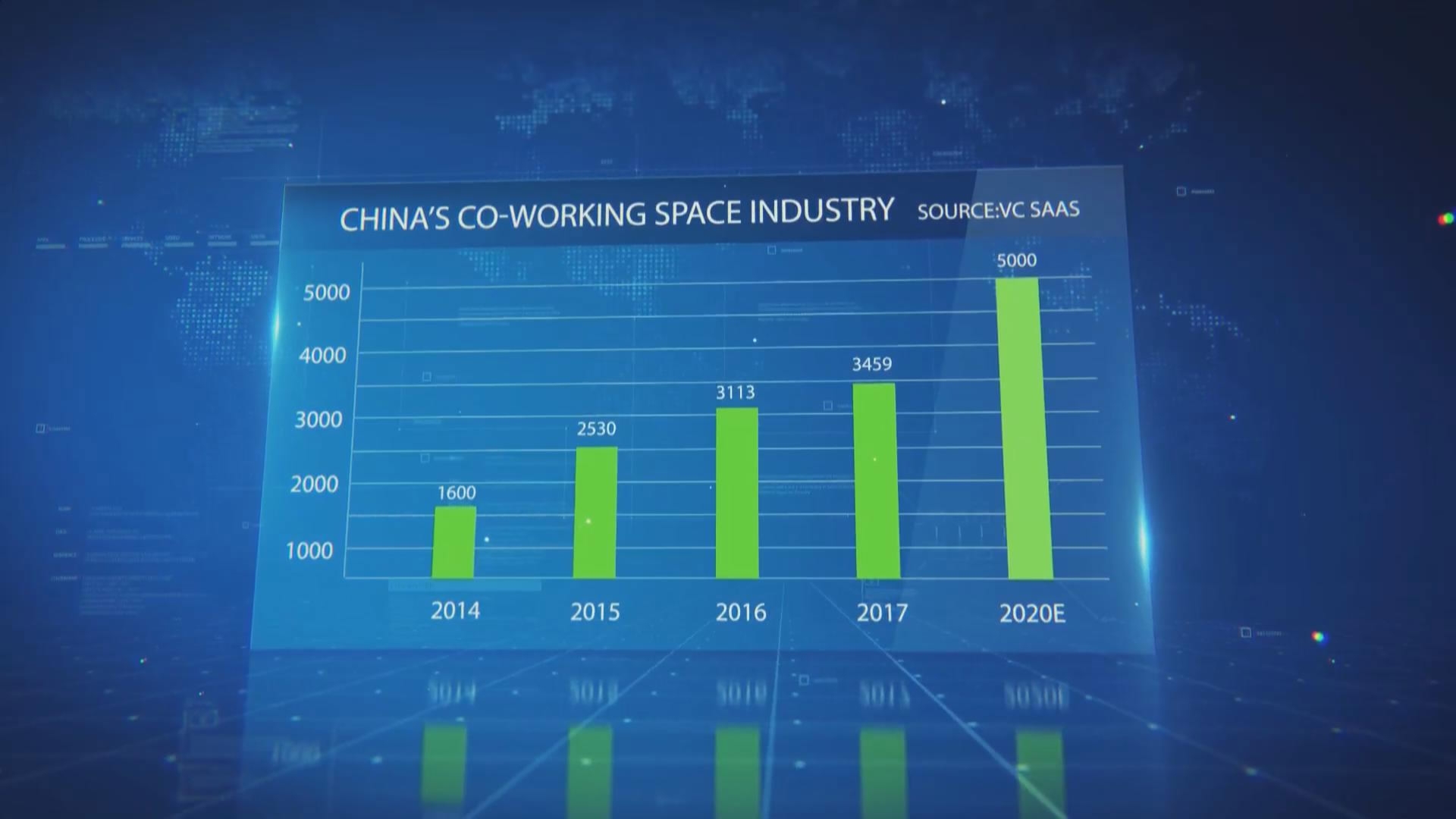
Business
18:59, 23-Mar-2018
Working well: Rise of co-working spaces in China
By New Money

A sand painting artist and entrepreneur based in Beijing, You Jia, is teaching people to use their smartphone-swiping skills to shape something a little more physical.
Further down the hallway, another startup, Leapp Music Studio, is following a similar tune. The two startup firms are among the growing number of the Chinese start-ups that find co-working spaces a more economical and flexible option.
Compared with traditional offices, co-working spaces might be more startup-friendly, with services ranging from company registration and taxes to roadshows and investor contacts. Plus, there’s also an extra benefit: the congregation of businesses also helps create synergies among these tenants.

/CGTN Picture
/CGTN Picture
China’s co-working spaces have flourished over recent years: totaling nearly 3,500 in 2017, more than twice the level seen in 2014. And the figure is expected to hit 5,000 in three years.
But as the market matures, the industry also faces a changing set of challenges: an influx of new co-working spaces looking to make a quick buck is squeezing profit margins. In addition, low retention rates industry players to upgrade their services and rely less on rental fees.
At the same time, some bigger co-working spaces are working their way to the overseas market. By expanding their global footprint, co-working spaces can help high-flying Chinese startups go global, while providing foreign startups the desirable access to Chinese venture investors and the Chinese market.

SITEMAP
Copyright © 2018 CGTN. Beijing ICP prepared NO.16065310-3
Copyright © 2018 CGTN. Beijing ICP prepared NO.16065310-3